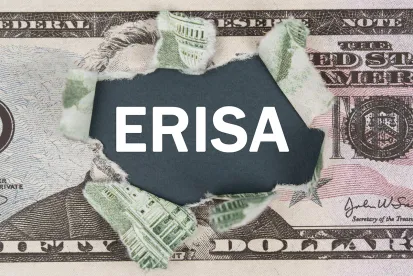In Hawkins v. Cintas Corp., No. 21-3156, __ F.4th __, 2022 WL 1236954 (6th Cir. Apr. 27, 2022), the U.S. Court of Appeals for the Sixth Circuit ruled that an arbitration clause contained in certain individual employment agreements may be insufficient to compel arbitration of putative class action claims asserted under ERISA § 502(a)(2). The Sixth Circuit reasoned, in a matter of first impression at the Circuit level, that Section 502(a)(2) claims generally “belong” to the ERISA Plan, not its individual participants, and may not be forced into arbitration absent plan consent.
In Hawkins, two former Cintas Corporation employees filed suit in the U.S. District Court for the Southern District of Ohio alleging that the company, its board of directors and its investment committee violated ERISA § 502(a)(2) by breaching their fiduciary duties of loyalty and prudence in managing the company’s retirement plan.
Both of the named plaintiffs previously entered into multiple employment agreements with Cintas each of which contained provisions that (1) obligated the named plaintiffs to arbitrate “claims arising out of or in any way related to [their] employment with [Cintas], such as rights or claims arising under … [ERISA],” and (2) precluded the named plaintiffs from asserting “class action or representative claims” and barred them from seeking “to represent the interests of any other person.” Hawkins, 2022 WL 1236954, at *2. Relying on these contracts, Cintas moved to compel arbitration and to stay the federal proceedings, arguing that the plaintiffs’ employment agreements covered their ERISA § 502(a)(2) claims.
The district court judge denied both motions, concluding that the action was brought on behalf of the Plan, and it was therefore irrelevant that the plaintiffs had consented to arbitration through their employment agreements. “Because the Plan itself did not consent, the court reasoned, the matter was not subject to arbitration.” Hawkins, at *3.
The Sixth Circuit affirmed on the facts before it, and without reaching the issue of whether Section 502(a)(2) claims are per se arbitrable under individual employment agreements. Hawkins, at *8 (“while we need not decide whether a § 502(a)(2) claim could ever be covered by an individual employment agreement’s arbitration provision, we hold that these Plaintiffs’ claims are not covered by the employment agreements in this case.”).
Notably, the Sixth Circuit suggested that “Cintas could amend the plan documents to include an arbitration provision, which might accomplish the … goal” of arbitrating Section 502(a)(2) claims, but left open the ultimate question of “whether an arbitration provision in the plan documents would subject § 502(a)(2) claims to arbitration.” Hawkins, at *9. In this regard, the Sixth Circuit’s ruling in Hawkins stops short of the Ninth Circuit’s ruling in Dorman v. Charles Schwab Corp., 780 F. App’x 510, 514 (9th Cir. 2019) that a plan can consent to and enforce arbitration of ERISA § 502(a)(2) claims in plan documents (see our previous discussion of Dorman here).
Read in conjunction, Hawkins and Dorman indicate that an effective practice for plans wishing to arbitrate all ERISA Section 502 claims may be to expressly consent to arbitration within plan documents. Absent such consent, defendants run the risk of inadvertently excluding from arbitration derivative and representative claims under Section 502(a)(2).



 />i
/>i

